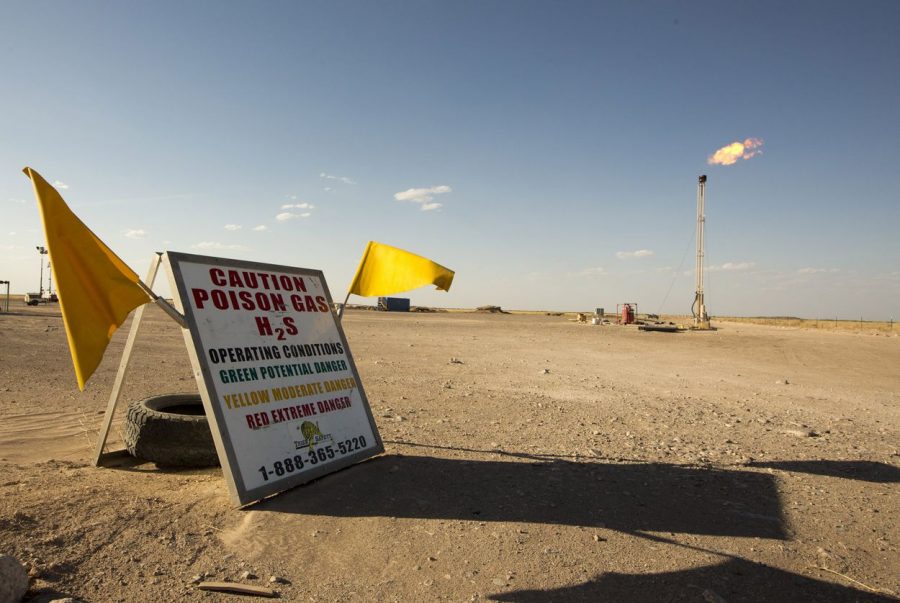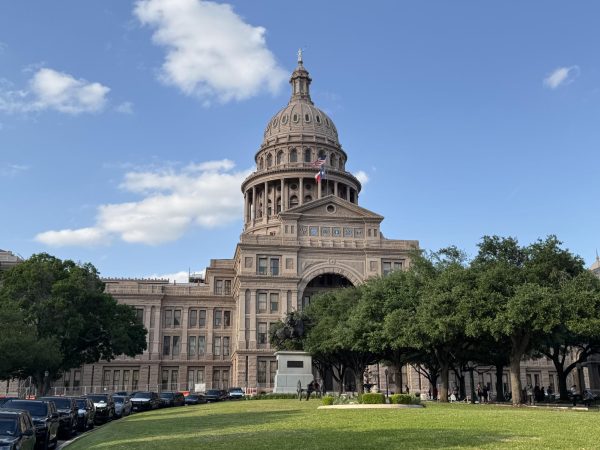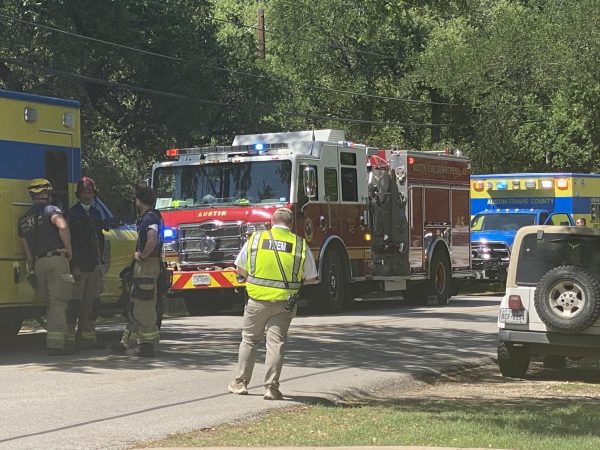Report: Unauthorized Air Pollution in Texas up 27 Percent in 2017
An analysis by the research arm of Environment Texas found 275 companies across the state reported emitting 63 million pounds of hazardous and climate-warming pollutants from their facilities in 2017.
Marjorie Kamys Cotera for The Texas Tribune
A natural gas flare in Pecos County, Texas. The state’s natural gas plants, particularly those in West Texas, flare off tens of millions of pounds of toxic sulfur dioxide and hundreds of millions of pound of poisonous hydrogen sulfide every year.
Texas industrial facilities continued to spew out tens of millions of pounds of unauthorized air pollution in 2017 as a result of equipment malfunctions and other incidents that companies claimed were unavoidable, according to a new analysis by the research arm of Environment Texas.
Using state data obtained by the Washington D.C.-based Environmental Integrity Project, the Austin-based environmental group found that 275 companies across the state reported emitting 63 million pounds of hazardous and climate-warming pollutants from their facilities in 2017, including sulfur dioxide, benzene, particulate matter and various volatile organic compounds.
That’s a 27 percent jump from 2016 — an increase that can be attributed in part to an unprecedented oil boom in West Texas, where operators are burning off historic amounts of natural gas, and pollution emitted by Houston-area facilities that shut down during Hurricane Harvey’s epic flooding.
A 2017 Texas Tribune report found that Texas industrial facilities consistently bust the emissions limits set in their government-issued air permits. Companies almost always claim that such violations are the result of “upsets” — unplanned equipment malfunctions, maintenance work or operator errors. State law allows companies to avoid penalties if they can prove that these “emission events” were indeed unavoidable.
But environmental and watchdog groups have long argued that the sheer number of such events every year — and the high number of repeat offenders — indicates that many companies are not really trying to tamp down on excess air pollution. Those groups say that even when facilities are faced with a legitimate emergency, like a hurricane, they could employ more modern equipment or better operating practices to cut down on the pollution released during startups and shutdowns.
The Texas Commission on Environmental Quality — the state’s environmental regulatory agency — rarely finds companies at fault and even more rarely hands down penalties, the Tribune’s investigation found. When it does, environmental and watchdog groups say the penalties are far below what the law allows and aren’t close to being in proportion to the companies’ profits and the potential public health impacts of the unauthorized emissions.
Environment Texas’ analysis, released Thursday, found that TCEQ “could issue fines as high as $2.3 billion for 2017 violations,” but “levied a total of $1.2 million in fines in 2017 or 2 cents per pound of pollution.”
“Air pollution is making people sick, especially children, senior citizens and people with respiratory problems,” Environment Texas chief Luke Metzger said in a statement. “The data show that polluters routinely violate the law, but TCEQ too often lets them off the hook. We need to crack down on illegal pollution and make our air safe to breathe.”
TCEQ spokeperson Andrea Morrow said in an email that the agency “does not comment on the reports of other groups. However, we vigorously defend our enforcement process.”
The report goes on to recommend that Texas lawmakers eliminate the affirmative defense provision that critics say allows industry to abuse the regulatory system. A news release noted that “the Environmental Protection Agency directed TCEQ to eliminate the loophole, but TCEQ refused, and the issue is now in the courts.”
While upsets make up a small fraction of what industrial sites are permitted to emit, they collectively add up to a significant amount of excess air pollution each year. Scientists and public health experts — who also argue that permit limits are too high — say the excess toxic and smog-forming pollutants exacerbate nagging air quality problems in the state’s major urban areas, spurring increased rates of asthma and cancer, as well as contributing to climate change.
Environment Texas’ analysis found that the Midland region was home to the largest number of upsets in 2017, making up more than half of all unauthorized pollution released. The Greater Houston area, home to the nation’s largest refining and petrochemical complex, came in second.
This story is from The Texas Tribune. The Texas Tribune is a nonprofit, nonpartisan media organization that informs Texans — and engages with them — about public policy, politics, government and statewide issues.






